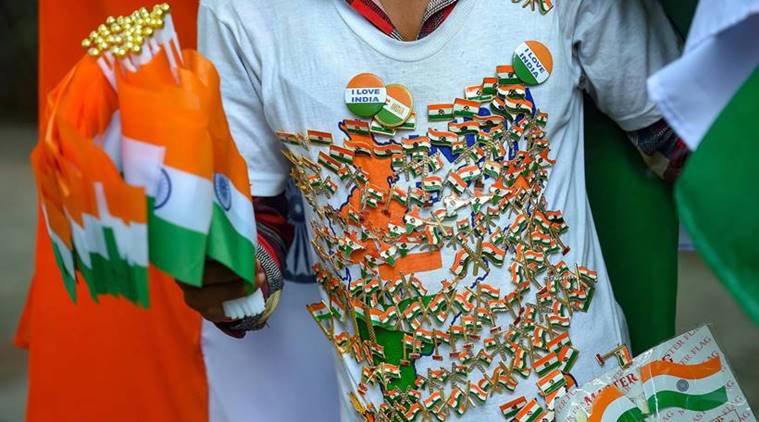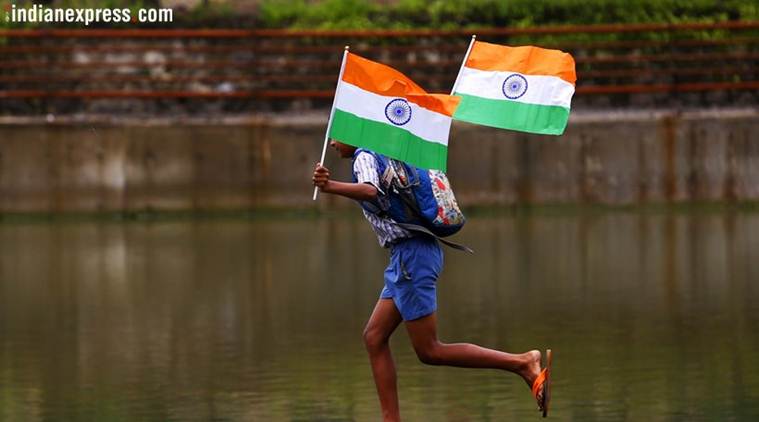To be honest, I feel our struggle for freedom continues. Now, if you are jarred by my timing as I bring this up on the eve of Independence Day, I would like to say I believe this may actually be the best time to take note in our understanding of freedom

Freedom means the state of not being imprisoned or enslaved. It is something the country fought for, with blood and sweat, surviving mutinies and massacres — mind, body and soul focused and determined, claiming our freedom back from the British 74 years ago. It is hardly something the average liberated Indian can imagine, that there can be more than one kind of slavery.
Freedom is a fundamental right, a sine qua non for liberty and dignity
To be honest, I feel our struggle for freedom continues. Now, if you are jarred by my timing as I bring this up on the eve of Independence Day, I would like to say I believe this may actually be the best time to take note of our understanding of freedom.
While we rise up to salute our tricolour and bow our heads to honour those who sacrificed to free the country, and chant our national anthem with pride in our chests and moisture in our eyes, it is time to look within and recognise our continued slavery. That which we allow in our belief systems and attitudes.
From the 1800s, the press in India has been a chief instrument in carrying out education, spreading nationalist ideologies and patriotism, political propaganda and social reforms to arouse, mobilise and consolidate public interest and opinion. This Independence Day, I wish for us to strive for freedom, from self-created, erroneously reinforced, perceived untruths about life, love and society. Maybe the responsibility of this revolution too will fall on media, to be the mouthpiece of a cultural reform starting intrinsically with our mindset.

Freedom from a need to please
The three pillars of true freedom are independent will, intention and decision-making. All of them are free and uncircumcised by hesitation caused by the need to appease another force, agency or person. These have been replaced and compromised time and time again for acknowledgement, approval and inclusion — a hunger that hardly gets satiated. So long as the satisfaction of our hunger lies in someone else’s hands, words or actions, we have no freedom.
Psychologists study the need to please in several projective techniques, and interpret it as an underlying anxiety, or a lack of independent thinking and survival. So long as we continue to act in ways to please others, assuming acceptance from others as necessary to our sense of self, making others powerful due to our subjective perception of power, we cannot call ourselves free. This freedom struggle will last until both the givers and the takers stop this mutually comforting game of dog-and-the-bone, respecting the voice of free will, effort and disagreement whether it suits us or not.
Freedom from the need to be right
No matter how many times it is exclaimed, declared and proven by scholars, great thinkers and authors that there is no ‘perfect’, we cannot get rid of this parasite of perfection that feeds on our insecurities, growing and mutating as we speak. Those who live with the heavy, dark and obstinate need to be right, suffer and cause much of the same in their environment.
Minutes into history taking, we can tell when a person functions with this need. The desperation, fear and vulnerable rigidity comes through dispelling all facades of confidence, euphoria, security and boldness. This truly worries me, because I have seen a high concordance rate of psycho-somatic diseases, depression, anger, anxiety and frustration, not just within the ‘need to be right’ personalities, but also their distressed partners and families relationships, which often ironically and unfortunately go terribly wrong. Long years of never-ending conflicts, submission or appeasing can be as stressful as the insecurity of turning out to be wrong, unheard or unnoticed.
Having the courage to accept being wrong, being willing to learn, embracing growth with humility is freedom. Nelson Mandela had said, “Courage is not the absence of fear, but the triumph over it”, and this triumph of overcoming the fear of being wrong, of making mistakes and of being vulnerable — that I do not need to be right to exist, that right is an evasive mirage that I’m exhausting myself over — is liberation from lifelong slavery to the cognitive distortion of always being right.
ALSO READ | Matters of the mind: The Made in India attitude
Freedom from a need to control
Our first encounter with gratification with this one takes place within a few hours of arrival into this world. Maybe that’s why this one is hard to let go.
When we cry as infants, we get attended to. This is our first lick at the power and satisfaction of having a sense of control over our environment. Control gives us a sense of existence and meaning. We believe we are good and have value when we can exercise control to cause something powerful, when we control someone else.
We set a goal, act towards it and if we get the result we want, we start assuming that we controlled the outcome, alone. And this reinforces our theory of control. This illusion enslaves us further into believing we can control external factors, namely others, future and results.

At the risk of being presumptuous, I say you are well-versed with this one. We all struggle to control most, if not every, aspect of our lives. Thereby living with a fear of losing control.
Our career graphs, our boss’ impression of us, our spouse’s words and behaviour, our children’s future, our relationships — we even wish to control the speed and direction of the stranger driving in the next lane. These thoughts gnaw at us through the day whispering “what if it doesn’t work out the way I want it to”. Controlling our environment and assuring ‘our interests’ is a persistent quest we find ourselves in. The future and others will never be controlled by us. So not only does this dependence on ‘control’ lead to fear, but also causes anger, relationship problems, disappointment, dejection, depression. The list is long.
ALSO READ | Matters of the mind: Swinging from one crisis to the next, there may be chance for a revolution
This is the slavery I hold responsible for several psycho-pathologies.
All of the above can aid competence, determination and motivation, one may argue. This occurs when these are focussed inwards, not imposed extrinsically. Maybe it is time for Satyagraha 2.0, satya meaning ‘truth’ and agraha meaning ‘firm request’; where we are comfortable being ourselves and are not dependent on praise, when we can attempt to learn instead of advocating what we think we know, and exercise better control on our own thoughts and actions, aimed at self awareness and growth. Our learning and evolving self is the ultimate ‘satya’ and only when fully accepted by us, can there be a glorious ‘tryst’ of motivation and success. If these needs are aimed outwards, it is by all standards, slavery.
(The author is a Mumbai-based psychologist and psychotherapist)
? The Indian Express is now on Telegram. Click here to join our channel (@indianexpress) and stay updated with the latest headlines
For all the latest Lifestyle News, download Indian Express App.
Source: Read Full Article



